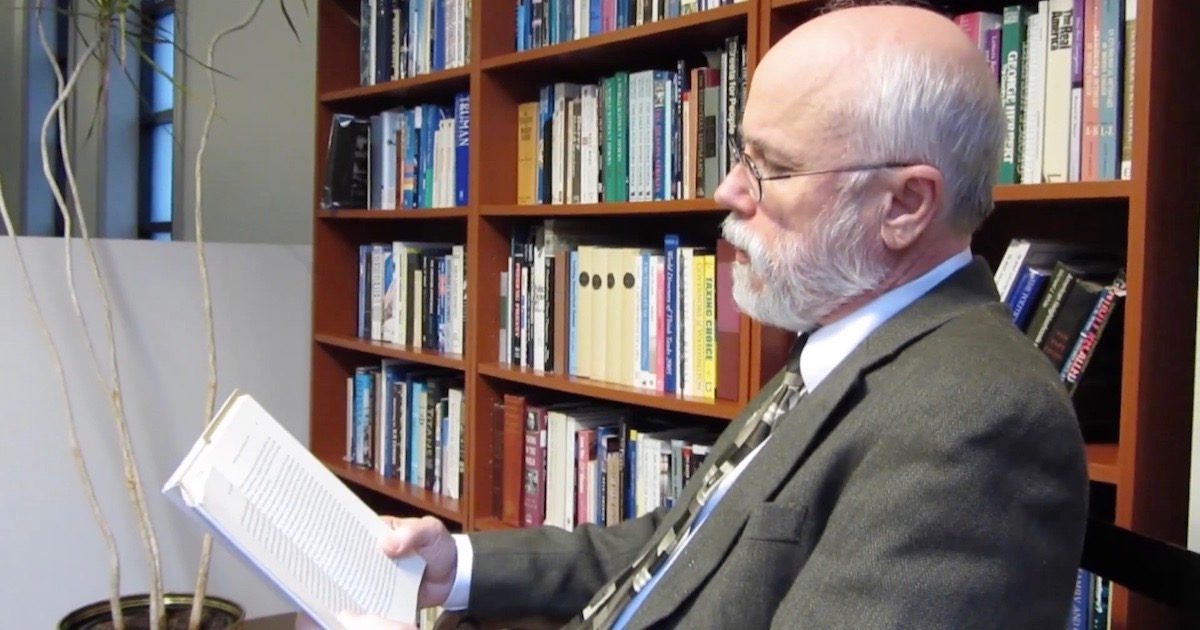
Den nye forskning han behandler i sin bog viser, at Darwins teori kan forklare nogle forandringer, men hurtig bryder sammen. DNA sekvensering har kun været tilgængelig i det seneste årti eller to. Dens resultater viser, at når organismer forandrer sig, gør de næsten altid ved at knække gener, ikke ved at lave nye. Så i almindelighed viser forskningen, at når en art udvikler sig, sker det gennem afvikling. Og denne afvikling forhindrer fremtidig udvikling.
Udvikling (ikke ledet) slår ting i stykker
Behe definerer sine begreber forsigtigt. Specielt ordet udvikling betyder mange forskellige ting. På et plan betyder det forandring over tid. Her er ingen uenighed. På et andet plan er det en teori om en fælles oprindelse, der siger, at alle organismer kom fra noget i retning af et forgrenet træ med en fælles rod. Men klassisk udviklingsteori hævder også, at denne fælles rod og alle livets tilpasninger skete gennem en ikke ledet proces: naturlig udvikling udvalgte blandt tilfældige variationer: Dette siger Behe strider klart mod kendsgerningerne.
Kommentar: Delvist oversat af Sott.net fra Darwin Devolves by Michael Behe: Another Huge Advance Against Darwinism and for Intelligent Design
Past critics of his work, including also his 2008 work The Edge of Evolution: The Search for the Limits of Darwinism, have assailed it as "religiously motivated." Behe certainly defends intelligent design, the theory that much if not all of nature is best explained as the product of a purposeful Mind. He didn't go there, though, until he read an early work on evolution by Michael Denton. That led him to realize he'd never asked evolution the hard questions.
Now with new findings from genetics, the questions are harder than ever. Experiments show that even adaptive changes - changes that seem like improvements - almost always come by way of breaking genes. In a recent podcast, Behe likened it to a car for whom gas mileage suddenly became its most important feature. (Full disclosure: I work with the Discovery Institute in helping produce the ID the Future podcast). The mileage problem is easy for cars, actually. Just remove some of its seats. In organisms this principle works, for example, when a gene that's been holding back an existing capability gets damaged. That capability then shows up. It's not a new capability, just newly expressed.
It Only Makes Sense: Breaking Things Is Easier
It makes sense, really. It's a whole lot easier to break a thing than it is to make one. Ask the poor nursery owner who thought I could help him one summer removing an old building and building a new one. I lasted there as long as the job was only about tearing things down.
Not only that, but once nature finds a way to improve a function work by degrading a gene, nature is happy with that. It'll spread that new answer throughout a population just as fast as Darwin ever supposed. That's what natural selection does: It preserves helpful (adaptive) changes and spreads them around while letting less lucky populations die away. Once nature is happy with one quick answer produced by breaking things, though, it's not going to hang around waiting for another, more elaborate answer produced by making things.
Misdirected and Unsupported Criticism
I'm oversimplifying, obviously, trying to summarize in a few words what Behe details over some 300 highly readable pages. I'm sure critics will find things not to like about my summary. And why not? Critics took Behe's earlier work to task, and yet never with any substance. Darwin's Black Box was vilified, even by Behe's colleagues at Lehigh. As he shows in an appendix to Darwin Devolves, though, no one has ever refuted its arguments. Not even close.
The most emphatic reactions comes from critics who can't stomach the idea that God had anything to do with life's origin and development. Behe quotes philosopher John Searle as saying the whole idea of a greater mind behind nature "does not fit in and seems intellectually repulsive." Which is a lot like saying, "I don't like the taste of it, therefore it isn't science." (See the book's website for up-to-the-minute discussion on criticisms and responses.)
This book is built on solid science. It's going to be harder than ever for critics to spit it out just because they don't like its taste. It will also be hard for critics to ignore the conclusion Behe reaches in his final chapter. Materialists, those who deny the larger reality of mind, typically end up denying even the human reality of mind. The world only makes sense if we see it as the product of a great, purposeful, highly intelligent designing Mind.



Læserkommentarer
dig vores Nyhedsbrev